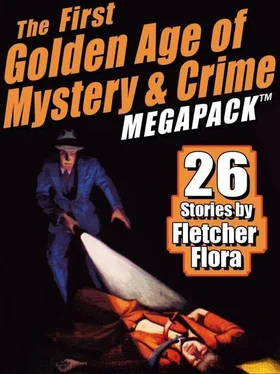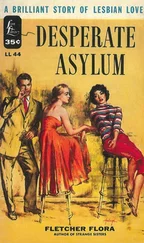“You were right. That’s exactly what Cal is going to do.”
“You shouldn’t work so hard at it, dear. Why don’t you hire a gardener to do such things?”
“Because I wouldn’t get any pleasure out of having a gardener do it. I enjoy doing the yard work — you know that perfectly well. All week I look forward to the weekend when I can get my green thumb into the ground. Things grow for me, and the grass somehow looks better when I mow it. I’m a frustrated horticulturist, I guess.”
This was true. He had made several millions in real estate speculations, but he took more pride in his grass, his roses, his flowering and evergreen shrubs. He even had the rough look of a man who lived close to the earth. Now, on the wide terrace behind his costly house, he was wearing a coarse blue shirt tucked into worn jeans, and his shoes were the shoes of a working man, not of a dilettante gardener — thick-soled, hard-toed shoes laced up around his ankles.
Mrs. Dearly, although willing to concede something to his more numerous years — which were twenty more than her own — still felt that the addiction of a rich man to rough pursuits, like digging in the ground and mowing grass, should adhere to more fashionable lines. There was no reason, for example, why Cal couldn’t work just as well in a colorful sports shirt and in presentable trousers and shoes as in the crude outfit he was now wearing. Moreover, to put it candidly, he stank. When she had bent over to kiss him and pat his head, the odor of perspiration had been strong. She could not see that it was made less offensive by being the result of earthly labor.
“Well, you must be careful of the heat,” she said. “You may have a stroke or something if you’re not careful.”
“I’ll be careful, thank you. An old fellow like me has to be, you know.”
“Nonsense. You’re a perennial boy. Will you look after yourself properly while I’m gone? Have a good lunch, I mean, and don’t stay too long in the sun without resting.”
“I’ll be all right,” he said. “I’m strong as a bull.”
Bending to kiss him again, she thought that he not only was as strong as one, he also smelled like one.
“Goodbye, dear,” she said. “I may be just a little late.”
“Shall I back your car out for you?”
“Don’t bother, thanks. I don’t in the least mind doing it myself.”
As a matter of fact, she preferred it. His handling of her beautiful little Jaguar was, she felt, a kind of physical violation only a little less disturbing than that imposed infrequently on herself. Having now evaded the former — as she did, whenever possible, the latter — she drove the ten or twelve miles downtown in a considerably shorter time than obedience to the speed limits would have permitted.
She loved driving fast, could not resist the sense and excitement of high speeds, and it was fortunate that she also drove expertly, with a casual mastery to which the Jaguar submitted as if it were somehow an extension of its driver. Sometimes she really felt this, especially on the highway, that she and the powerful little car were organically joined, and that it experienced in its tempered-steel body the same thrill she experienced in her soft and yielding body. This was nonsense, of course, a private fantasy, but it amused her...
Downtown, she parked in the Municipal Garage two levels underground and walked through a brightly lighted tunnel to an elevator that carried her up into the lobby of a hotel across the street. She was hungry by then, so she had lunch by herself in the hotel, and after eating like a bird she went to several department stores in the area where she bought a great many things, mostly personal and wearable, all of which she left in the stores for delivery. This took quite a while, lunch and shopping requiring about three hours; but the time passed agreeably and almost before she knew it, it was 3:30 — which was the time she was supposed to meet Douglas.
She returned to the hotel where she had lunched, going this time to the cocktail lounge instead of the restaurant, and it was cool and seductive there, in an artificial dusk suspended mistily between light and darkness. She paused just inside the door while her eyes adjusted to the shadows, listening to the soft serenade of recorded strings and feeling her happiness and quiet excitement stir and swell inside her with an effect of almost painful pleasure; and all the while she was looking around for Douglas, and there he was, as she had hoped and expected, at a small table in a corner.
There was such a sudden sharp intensification of her pleasurable pain that she almost whimpered, and she thought at the same time, with incongruous detachment, that it was odd that he should have the capacity to make her feel that way, for he was not an exceptional young man at all. He was, in fact, rather dull at times, and incited her at once to exasperation and tenderness.
Seeing her approach, he started to rise, but she slipped so quickly into the chair across from him that he was no more than half up when she was entirely down. He resumed his seat after remaining a moment half risen, as if he were fighting an impulse to leave at once, and she took one of his hands and held it lightly on the table.
“Darling,” she said, “have you been waiting long?”
“No. Just a few minutes.”
“Have you had a drink?”
“Not yet. I was waiting for you.”
“That was nice of you. You are always so nice. What shall we have? Martinis?”
“I suppose so. We always do, don’t we?”
He gave the order to a girl who was waiting for it, and after the Martinis had been mixed and brought, Mrs. Dearly looked at him fondly — and wondered why she was here looking at him at all. His face in repose, boyishly handsome beneath a falling lock of dark hair that seemed contrived, was like a cheap air-brush portrait by an inferior artist in which all other features were subordinated to a sulky mouth. Douglas was, in fact, an inferior artist himself, an instructor in an art school, and she had met him almost six months ago when she had gone to the school to learn to paint in water colors, for which, as she quickly learned, she had no talent whatever. This knowledge — and Douglas — were all she had acquired from the effort.
Sipping her Martini and speaking over the thin edge of glass, she said, “What have you been doing with yourself?”
“Nothing much. Nothing of consequence.”
“Are you working on something remarkable?”
“I’m not working on anything at all. It’s impossible.”
“Darling, are you still feeling guilty about Cal? If only you could understand what a waste your guilty conscience is. You have done him no harm, and neither have I, and we have done each other a great deal of good.”
“I doubt that Cal would think so.”
“Oh, nonsense. Cal doesn’t think about it one way or another. While you are sitting here making yourself miserable, he is at home this instant as happy as can be, digging in the flower gardens and mowing the grass.”
“You make everything sound so simple and acceptable.”
“Because it is. You must learn to accept things as they are and without complicating them in your mind.”
“Well, it’s not so easy to accept your going on indefinitely as Cal’s wife.”
“You must be patient, darling. Something will work out for us eventually — perhaps sooner than you think. In the meanwhile, let’s have another Martini before I go.”
“Why must you go so soon?”
“Something to do at home — but it’s really too tiresome to talk about.”
Her second Martini, which was consumed slowly to the sound of strings, proved a considerable challenge to her resolution to go home; but she went, nevertheless, about 4:30. The traffic was heavy on the streets, crippling the Jaguar, which could not get free to run until the last few miles-so that it was five when she pulled into the driveway behind a car which sat there, blocking the way to the garage.
Читать дальше












